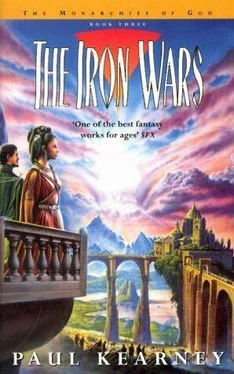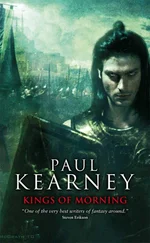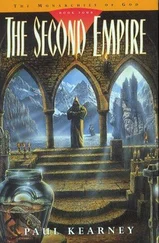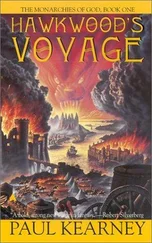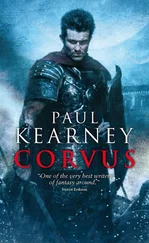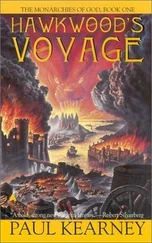Paul Kearney - The Iron Wars
Здесь есть возможность читать онлайн «Paul Kearney - The Iron Wars» весь текст электронной книги совершенно бесплатно (целиком полную версию без сокращений). В некоторых случаях можно слушать аудио, скачать через торрент в формате fb2 и присутствует краткое содержание. Жанр: Фэнтези, на английском языке. Описание произведения, (предисловие) а так же отзывы посетителей доступны на портале библиотеки ЛибКат.
- Название:The Iron Wars
- Автор:
- Жанр:
- Год:неизвестен
- ISBN:нет данных
- Рейтинг книги:4 / 5. Голосов: 1
-
Избранное:Добавить в избранное
- Отзывы:
-
Ваша оценка:
- 80
- 1
- 2
- 3
- 4
- 5
The Iron Wars: краткое содержание, описание и аннотация
Предлагаем к чтению аннотацию, описание, краткое содержание или предисловие (зависит от того, что написал сам автор книги «The Iron Wars»). Если вы не нашли необходимую информацию о книге — напишите в комментариях, мы постараемся отыскать её.
The Iron Wars — читать онлайн бесплатно полную книгу (весь текст) целиком
Ниже представлен текст книги, разбитый по страницам. Система сохранения места последней прочитанной страницы, позволяет с удобством читать онлайн бесплатно книгу «The Iron Wars», без необходимости каждый раз заново искать на чём Вы остановились. Поставьте закладку, и сможете в любой момент перейти на страницу, на которой закончили чтение.
Интервал:
Закладка:
Paul Kearney
The Iron Wars
WHAT WENT BEFORE…
Five centuries ago two great religious faiths arose which were to dominate the entire known world. They were founded on the teachings of two men. In the west, St Ramusio; in the east, the Prophet Ahrimuz.
The Ramusian faith rose at the same time that the great continent-wide empire of the Fimbrians was coming apart. The greatest soldiers the world had ever seen, the Fimbrians had become embroiled in a vicious civil war which enabled their conquered provinces to break away one by one and become the Seven Kingdoms. Fimbria dwindled to a shadow of her former self, her troops still formidable, but her concerns confined exclusively to the problems within the borders of the homeland. And the Seven Kingdoms went from strength to strength-until, that is, the first hosts of the Merduks began pouring over the Jafrar mountains, quickly reducing their numbers to five.
Thus began the great struggle between the Ramusians of the west and the Merduks of the east, a sporadic and brutal war carried on for generations, which, by the sixth century of Ramusian reckoning, was finally reaching its climax.
For Aekir, greatest city of the west and seat of the Ramusian Pontiff, finally fell to the eastern invaders in the year 551. Out of its sack escaped two men whose survival was to have the greatest consequences for future history. One of them was the Pontiff himself, Macrobius-thought dead by the rest of the Ramusian kingdoms and by the remainder of the Church hierarchy. The other was Corfe Cear-Inaf, a lowly ensign of cavalry, who deserted his post in despair after the loss of his wife in the tumult of the city’s fall.
But the Ramusian Church had already elected another Pontiff, Himerius, who was set upon purging the Five Kingdoms of any remnant of the Dweomer-folk-the practitioners of magic. The purge caused Hebrion’s young king, Abeleyn, to accept a desperate expedition into the uttermost west to seek the fabled Western continent, an expedition led by his ruthlessly ambitious cousin, Lord Murad of Galiapeno. Murad blackmailed a master mariner, one Richard Hawkwood, into navigating the voyage, and as passengers and would-be colonists they took along some of the refugee Dweomer-folk of Hebrion, including one Bardolin of Carreirida. But when they finally reached the fabled west, they found that a colony of lycanthropes and mages had already existed there for centuries under the aegis of an immortal arch-mage, Aruan. Their exploratory party was wiped out, only Murad, Hawkwood and Bardolin surviving.
Back in Normannia, the Ramusian Church was split down the middle as three of the Five Kingdoms recognized Macrobius as the true Pontiff, while the rest preferred the newly elected Himerius. Religious war eruped as the three so-called Heretic Kings-Abeleyn of Hebrion, Mark of Astarac and Lofantyr of Torunna, fought to retain their thrones. They all succeeded, but Abeleyn had the hardest battle to fight. He was forced to storm his own capital, Abrusio, by land and sea, half-destroying it in the process.
Farther east, the Torunnan fortress of Ormann Dyke became the focus of Merduk assault, and there Corfe distinguished himself in its defence. He was promoted and, catching the eye of Torunna’s Queen Dowager, Odelia, was given the mission of bringing to heel the rebellious nobles in the south of the kingdom. This he undertook with a motley, ill-equipped band of ex-galley slaves, which was all the king would allow him. Plagued by the memory of his lost wife, he was, mercifully, unaware that she had in fact survived Aekir’s fall, and was now the favourite concubine of the Sultan Aurungzeb himself.
The momentous year 551 drew to a close. In Almark, the dying king Haukir bequeathed his kingdom to the Himerian Church, transforming it into a great temporal power. And in Charibon two humble monks, Albrec and Avila, stumbled upon an ancient document, a biography of St Ramusio which stated that he was one and the same as the Merduk Prophet Ahrimuz. The monks fled Charibon, but not before a macabre encounter with the chief librarian of the monastery city, who turned out to be a werewolf. They ran into the teeth of a midwinter blizzard, collapsing into the snow.
And now all over the continent of Normannia, the armies are once more on the march.
In thy faint slumbers I by thee have watched,
And heard thee murmur tales of iron wars…
Henry IV, Part IPROLOGUE
In the sweating nightmare-fever of the dark he felt the beast enter his room and stand over him. But that was impossible. Not from so far, surely-
Oh, sweet God in heaven, overlord of earth, be with me now…
Prayers, prayers, prayers. The mockery of it, he praying to God, whose soul was black as pitch and already sold. Already lost and consigned to the fires of eons.
Sweet Ramusio, sit with me. Be near me now in this lost hour.
He wept. It was here, of course it was. It was watching, patient as a stone. He belonged to it. He was damned.
Soaked in perspiration, he opened his gummy eyelids to the all-embracing dark of his midnight room. Tears had fled down the sides of his neck as he slept and the heavy furs of his bed were awry. He gave a start at their lumpen, hairy shape. But it was nothing. He was alone after all, thank God. Nothing but the quiet winter night wheeling in its chill immensity beyond the room.
He scratched flint and steel together from the bedside table, and when the tinder caught transferred the seed of sparks to his candle. A light, a point of reference in the looming murk.
Utterly alone. He was without even the God he had once reverenced and to whom he had devoted the best years of his life. Clerics and theologians said that the Creator was everywhere, in every niche and pocket of the world. But He was not here, in this room. Not tonight.
Something else was coming, though. Even now he could sense it hurtling through the dark towards him as unstoppable as the turning sun, its feet hardly setting down upon the dormant world. It could cover continents and oceans in the blink of an eye.
The furs on his bed gave a twitch, and he yelped. He clawed his way to the headboard, eyes starting out of his head, heart hammering behind his ribs.
They gathered themselves into a mound, a hulking mass of hair. And then they began to grow, bulking out in the dimness and the candleflame, the room a sudden playground of moving shadows as the light flickered and swam.
The furs rose and rose in the bed, towering now. And when they loomed over him, tall as some misshapen megalith, two yellow eyes blinked on in their midst, bright-hungry as an arsonist’s flame.
It was here. It had come.
He fell on his face amid the damp linen sheets, wor-shipping. Truly here -he could smell the musk of its presence, feel the heat of the enormous form. A drop of spit fell from its maw and as it struck his neck it sizzled there, burning him.
Greetings, Himerius , the beast said.
“Master,” the prostrate cleric whispered, grovelling in his soiled bed.
Be not afraid , its voice said without a sound. Himerius’s reply was inarticulate, a gargle of terror.
The time is here, my friend , it said. Look up at me. Sit up and see .
A huge paw, fingered and taloned like some mockery of man and beast, raised him to his knees. Its pads scorched his skin through the wool of his winter shift.
The face of the winter’s wolf, its ears like horns above a massive black-furred skull in which the eyes glared like saffron lamps, black-slitted. A foot-long fanged muzzle from which the saliva dripped in silver strings, the black lips drawn back taut and quivering. And caught in the teeth, some glistening vermilion gobbet.
Читать дальшеИнтервал:
Закладка:
Похожие книги на «The Iron Wars»
Представляем Вашему вниманию похожие книги на «The Iron Wars» списком для выбора. Мы отобрали схожую по названию и смыслу литературу в надежде предоставить читателям больше вариантов отыскать новые, интересные, ещё непрочитанные произведения.
Обсуждение, отзывы о книге «The Iron Wars» и просто собственные мнения читателей. Оставьте ваши комментарии, напишите, что Вы думаете о произведении, его смысле или главных героях. Укажите что конкретно понравилось, а что нет, и почему Вы так считаете.
